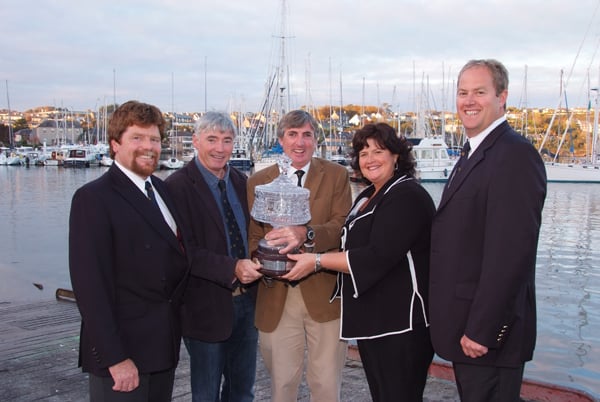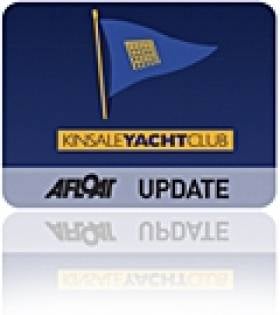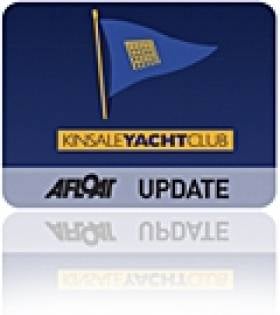Displaying items by tag: Keane's Jewellers
Quarter Ton Class Returns to Sovereigns Cup
The Quarter ton fleet is sailing back to the Sovereigns Cup in 2011. The event runs in Kinsale from June 22-25th.
The Quarter ton fleet made its debut at the 2009 event where a total of seventeen boats competed for the 'Keane's Jewellers perpetual Quarter Ton trophy'. Boats travelled from all over Ireland for the event with seven boats making the journey from the UK.
The four-day regatta was sailed on windward leeward courses, with one coastal race along the beautiful West Cork coastline. The coastal race proved memorable as the fleet short tacked their way along the shore to gain tidal relief in twenty knots of breeze and blazing sunshine with the race culminating in a long planning run back towards the mouth of the harbour.
After eight races the Cowes based yachtsman Peter Morton on 'Anchor Challenge' won the event on count back from Rob Gray's beautifully presented 'Aquilla' which was testimony to the close racing experienced within the fleet. The Ron Holland prize for best production boat was awarded to Kinsales' Ian Travers on his Bolero 'Bandit'.
The inclusion of the class in the 2009 regatta developed a lot of interest both during and after the event. Since then the Irish Quarter ton fleet has developed with the addition of some new boats with others currently undergoing refit for next season. With the recent announcement by the Quarter ton class in the UK to yet again include this event on their calendar for next year, it is highly likely that even in these recessionary times, the class numbers will grow for this truly enjoyable event. (See www.quartertonclass.org )
If you are interested in bringing your quarter tonner to Sovereigns Cup 2011 please contact Ian Travers @ +35387 9481576 or [email protected] or see HERE for further details.
Kinsale Yacht Club Announces 2011 Sovereign's Cup
Details of the 2011 Sovereign's Cup were announced at a reception at Kinsale Yacht Club, hosted by Regatta Director, Gary Horgan. The Sovereign's Cup takes place from 22nd-25th June 2011 in the outer harbour of Kinsale which prides itself with excellent sailing conditions, as well as an extensive social programme ashore.
The Sovereign's Cup was established in 1995 as a biennial event and has been a very successful and hugely popular cruiser regatta, with over 140 boats from all over Ireland and the UK competing for the prestigious Sovereign's Cup for best all round score in IRC and The Portcullis Trophy for best progressive handicap.
There are many Classes for entry; including Class 0, 1, 2, 3, 4 and two White Sails classes. Also, the Quarter Ton Class Championships will be taking place during the Sovereign's Cup, bringing many new visitors to Kinsale from the South of England and Wales in particular.
Eamonn Rohan in Blondie IV a Mills Design King 40, claimed the 2009 Sovereign's Cup as the 2009 Portcullis Trophy was awarded to Chapman / Reilly's Crazy Horse. Anchor Challenge captured Class 3-IRC and the Quarter Ton Class and was awarded the Keane's Jewellers Quarter Ton Perpetual Trophy.

The Kinsale Yacht Club committee behind the 2011 Sovereigns Cup
"We have already received a number of entries for The 2011 Sovereign's Cup in June and we will be stepping up our sponsorship and communications programme as the months advance," said Gary Horgan, Race Director. "We are very grateful to Kinsale Yacht Club, the Race Management team and all the volunteers who get involved with the organisation of the Sovereign's Cup as we are working hard to organise an excellent programme both on and off the water. We are encouraging people to start thinking about their travel and accommodation plans and are delighted that the Cork Swansea ferry will enable more sailors to access Kinsale easily from the UK," he added.






























































